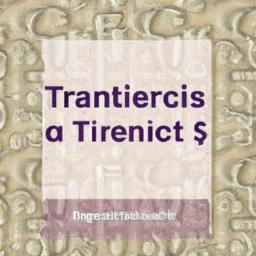In the complex landscape of estate planning, trusts stand out as powerful tools for ensuring the secure and efficient transfer of assets. As experienced practitioners in the field of law, we at Morgan Legal Group understand the paramount importance of trusts in safeguarding one’s legacy and providing for future generations. In this article, we delve into the intricacies of trusts, exploring their significance and shedding light on why these legal entities hold a pivotal role in comprehensive estate planning strategies. Join us as we unravel the reasons why trusts are indispensable in securing your financial future.
Why Trusts are Essential Components of Estate Planning
Trusts are a critical component of estate planning because they offer a level of control and flexibility that other tools such as Wills do not provide. Through a trust, individuals can specify exactly how and when their assets should be distributed to their beneficiaries. This ensures that their wishes are carried out precisely as intended.
Furthermore, trusts can help individuals minimize estate taxes and avoid probate, which can be time-consuming and costly. By establishing a trust, individuals can protect their assets and provide for their loved ones in a more efficient and secure manner. Trusts also offer privacy, as they do not become public record like Wills do, allowing individuals to keep their financial affairs confidential.

The Benefits of Establishing Trusts for Asset Protection
Establishing trusts for asset protection can offer numerous benefits that can help safeguard your assets for future generations.
<ul>
<li><strong>Privacy:</strong> Trusts allow for the avoidance of probate, which means that your assets and their distribution remain private.</li>
<li><strong>Protection from creditors:</strong> By placing assets in a trust, you can protect them from potential creditors and lawsuits.</li>
<li><strong>Control over distribution:</strong> With a trust, you can specify how and when your assets are distributed to beneficiaries, ensuring your wishes are carried out.</li>
<li><strong>Tax benefits:</strong> Certain trusts can offer tax benefits, allowing for the reduction of estate taxes and capital gains taxes.</li>
</ul>
Furthermore, trusts can provide a level of flexibility that may not be available with other estate planning tools. By working with experienced attorneys, such as the team at Morgan Legal Group in New York City, you can create a customized trust that meets your specific needs and goals.
<table class="wp-block-table">
<tr>
<td>Benefit</td>
<td>Description</td>
</tr>
<tr>
<td>Asset Protection</td>
<td>Shields assets from potential creditors and lawsuits.</td>
</tr>
<tr>
<td>Privacy</td>
<td>Avoids probate and keeps asset distribution private.</td>
</tr>
<tr>
<td>Tax Benefits</td>
<td>May offer tax advantages, such as reducing estate and capital gains taxes.</td>
</tr>
</table>

Ensuring Privacy and Avoiding Probate with Trusts
Trusts play a crucial role in ensuring privacy and avoiding probate. When assets are held in a trust, they are not subject to probate proceedings, which can be time-consuming and costly. This means that the details of the trust, including its assets and beneficiaries, remain private and do not become part of the public record. By keeping the distribution of assets out of probate court, trusts provide a level of privacy that is not available with other estate planning tools.
Furthermore, trusts offer a level of control and flexibility that is not always possible with a Will. With a trust, you can dictate exactly how and when your assets will be distributed to your beneficiaries. This ensures that your wishes are carried out precisely as you intended. Additionally, trusts can help avoid potential challenges to your estate plan, such as claims of incompetence or undue influence, by clearly outlining your intentions and providing a transparent legal framework for the distribution of your assets.

Maximizing Tax Efficiency through Trusts in Estate Planning
Trusts are a crucial component of estate planning that allows individuals to maximize tax efficiency and protect their assets for future generations. By establishing a trust, individuals can transfer their assets to a separate legal entity, managed by a trustee, to ensure that their wishes are carried out according to their instructions. Trusts offer several benefits that can help individuals minimize tax liabilities and avoid probate court, making them an essential tool for comprehensive estate planning.
One of the key advantages of trusts is their ability to provide flexibility and control over the distribution of assets. Through trusts, individuals can specify how and when their assets are distributed to beneficiaries, ensuring that their wealth is passed down according to their wishes. Additionally, trusts can help individuals avoid the lengthy and costly probate process, allowing for a smoother transfer of assets to heirs. By working with an experienced estate planning attorney, individuals can create trusts that are tailored to their specific needs and goals, ultimately maximizing tax efficiency and protecting their assets for future generations.
Q&A
Q: Why are trusts important?
A: Trusts are important for various reasons, including asset protection, privacy, and estate planning.
Q: How can trusts help with asset protection?
A: By transferring assets into a trust, they can be shielded from creditors and lawsuits, providing enhanced protection for your wealth.
Q: How do trusts offer privacy benefits?
A: Unlike wills, trusts do not need to go through the probate process, allowing for a more private distribution of assets without public record.
Q: In what ways can trusts assist with estate planning?
A: Trusts enable you to specify how and when your assets will be distributed to your beneficiaries, ensuring your wishes are carried out without the need for court intervention.
Q: Are trusts only for the wealthy?
A: No, trusts can be beneficial for individuals of all income levels who want to protect and distribute their assets in a more efficient and effective manner.
Final Thoughts
In conclusion, trusts play a vital role in safeguarding assets, providing for loved ones, and ensuring the smooth transfer of wealth. By setting up a trust, individuals can enjoy peace of mind knowing that their wishes will be carried out and their legacy will be protected for future generations. As we navigate through life’s uncertainties, trusts serve as a beacon of stability and security, guiding us towards a brighter and more secure financial future. Embrace the power of trusts and take control of your legacy today. Trust us, you won’t regret it.
 Why Are Trusts Important? The Benefits, Purpose, and Uses
Why Are Trusts Important? The Benefits, Purpose, and Uses
When it comes to estate planning and protecting assets, trusts have become a popular and effective tool. Trusts have been around for centuries, but with the changing landscape of today’s society, they have become even more essential. So, what exactly is a trust and why are they important? In this article, we will explore the purpose and benefits of trusts and how they can be used to safeguard your assets and provide for your loved ones in the future.
What is a Trust?
A trust is a legal arrangement where a person or entity, known as a trustee, holds and manages assets on behalf of another person or entity, known as a beneficiary. The trustee is responsible for managing and distributing the assets according to the instructions laid out in the trust document. This document outlines how the trust is to be carried out and who the beneficiaries are.
Trusts are commonly used for estate planning purposes to ensure that assets are protected and properly distributed to heirs. However, they can also serve other purposes, such as managing assets for special needs individuals, charitable giving, or managing assets for minors. There are various types of trusts, and each has its unique purpose and benefits.
Why Are Trusts Important?
1. Asset Protection
One of the main reasons trusts are important is their ability to protect assets from potential creditors and legal claims. When a person places their assets in a trust, they no longer legally own them, and the assets are not subject to seizure. This feature can be especially useful in the event of a lawsuit or bankruptcy, as the assets will be protected and not at risk of being lost. It’s also essential for individuals with high-risk occupations or those who are involved in lawsuits frequently.
2. Avoiding Probate
Probate is the legal process of validating a deceased person’s will and distributing their estate according to their wishes. While probate is necessary, it can be lengthy, costly, and publicly disclosed. By placing assets in a trust, they are not subject to probate, avoiding the lengthy and costly process. Trusts also provide privacy, as they are not publicly disclosed, unlike wills, which are a matter of public record.
3. Flexibility
Trusts offer a level of flexibility that other estate planning tools, such as wills, do not. For example, a trust can be drafted to specify how and when the assets will be distributed to beneficiaries. This feature can be beneficial in the case of minor children, as the assets can be managed and distributed on their behalf until they reach a certain age and can manage the assets themselves. Trusts also allow for more complex arrangements, such as managing assets for special needs individuals or creating charitable giving opportunities.
4. Tax Benefits
Depending on the type of trust and its purpose, there may be potential tax benefits. For example, charitable trusts offer tax deductions for the donor, while other trusts can help reduce or avoid estate taxes. Consulting with a financial planner or tax professional can help determine the best trust for your specific financial situation.
5. Protecting Minor Children
Unfortunately, life can be unpredictable, and a parent’s passing can leave minor children vulnerable. Setting up a trust for minor children can provide peace of mind, knowing that there is a plan in place to manage their assets and provide for their needs until they come of age. It can also help prevent potential family disputes over the guardianship of the children and how their assets will be managed.
Practical Tips for Setting Up a Trust
1. Consult with an Attorney
Trusts involve legal documents and require careful consideration and planning. Consulting with an attorney who specializes in estate planning can help ensure that the trust is set up correctly and aligns with your wishes and goals.
2. Choose the Right Type of Trust
As mentioned before, there are various types of trusts, each serving a different purpose. It’s crucial to determine which type of trust is best suited for your situation and goals. An attorney or financial planner can provide guidance on selecting the appropriate trust for your needs.
3. Determine Beneficiaries
Before setting up a trust, it’s essential to decide who the beneficiaries will be and how and when they will receive the assets. This will help determine the details of the trust and ensure it aligns with your wishes.
In Conclusion
Trusts are an essential estate planning tool that offers numerous benefits. They can protect assets, provide for loved ones, and offer flexibility and tax benefits. Consulting with an attorney or financial planner can help determine the best trust for your situation and ensure that your assets are protected and distributed according to your wishes. By taking the time to set up a trust, you can have peace of mind knowing that your assets and loved ones are well-taken care of in the future.

